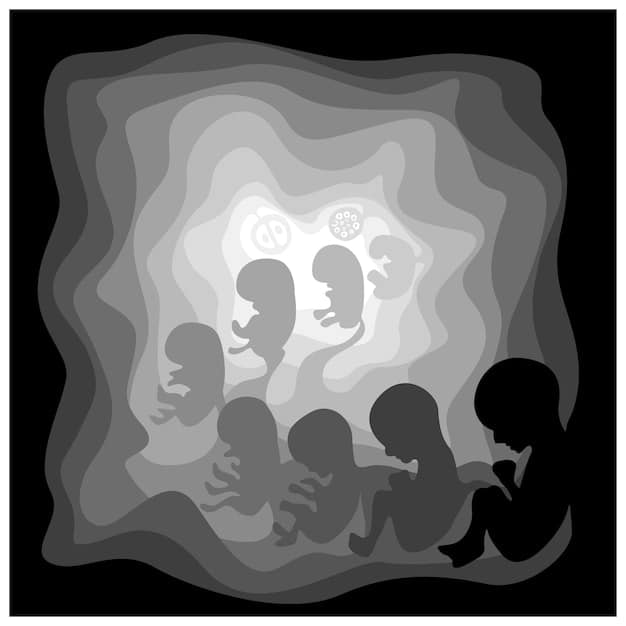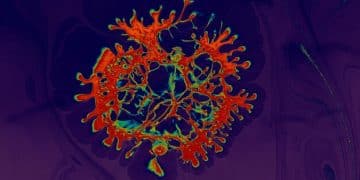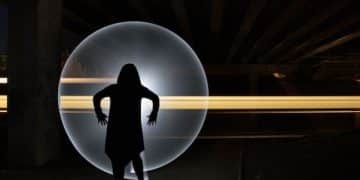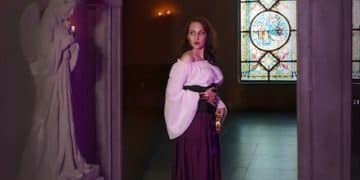The Last of Us Part III: Joel’s Return As Hallucination? Theories Explored

The prospect of Joel’s return in The Last of Us Part III as a hallucination is a captivating fan theory, deeply rooted in the narrative precedent of the series, hinting at a complex emotional journey for Ellie and the exploration of grief’s profound impact on the human psyche in a post-apocalyptic world.
The world of The Last of Us Part III is shrouded in mystery, yet one question echoes loudly among fans: will Joel Miller return, perhaps as a hallucination? This article dives deep into the most compelling fan theories surrounding Joel’s potential spectral reappearance and the profound impact such a narrative choice could have on the series, particularly on Ellie’s continuing struggle with grief and trauma.
The Enduring Legacy of Joel Miller
Joel Miller’s death in The Last of Us Part II was brutal, shocking, and undeniably pivotal, sending ripples through the gaming community that are felt to this day. His character, deeply flawed yet undeniably protective, served as the emotional anchor for the first game, guiding Ellie through a ravaged America. This bond, forged in fire and loss, became the heart of the series, making his abrupt demise exceptionally impactful.
The profound effect of his death on Ellie is a central theme of Part II. Her journey of vengeance and eventual, albeit partial, forgiveness is intricately tied to her unresolved grief for Joel. This emotional weight makes any proposed return, even a spectral one, incredibly resonant. It speaks to the enduring nature of their relationship and the psychological scars left on Ellie.
Joel’s Psychological Footprint on Ellie
Ellie’s character arc is defined by her relationships, and none are as significant as her bond with Joel. His influence shaped her survival skills, her worldview, and ultimately, her moral compass. Even after his death, Joel’s presence looms large over her decisions and internal conflicts. The second game constantly reminds players of their past, through flashbacks and Ellie’s internal monologues, cementing his permanent place in her psyche.
- Guilt and Regret: Ellie’s last conversation with Joel, tinged with anger and distance, haunts her throughout Part II. A hallucination could explore this unresolved tension.
- Emotional Anchor: Joel was Ellie’s last remaining family. His absence leaves a void that no one else can truly fill.
- Moral Compass: Joel’s pragmatic and often ruthless survival tactics influenced Ellie, creating a complex internal struggle between his teachings and her own evolving sense of morality.
The emotional vacuum created by Joel’s absence is not easily filled. His memory acts as both a tormentor and a guide for Ellie, pushing her to confront the darkest aspects of her own nature. This enduring internal struggle provides fertile ground for a narrative device like hallucinations.
Exploring Joel’s legacy isn’t just about his character; it’s about understanding the deep, often painful, ways in which his life and death continue to shape the world and the remaining characters of The Last of Us. His story, though concluded, reverberates through every potential future narrative path, especially for Ellie.
Precedent in Narrative: Grief and Hallucinations in The Last of Us
Naughty Dog, the developers behind The Last of Us, have consistently demonstrated a masterful understanding of character psychology and the impact of trauma. The series is renowned for its unflinching portrayal of grief, loss, and the mental toll of surviving a brutal apocalypse. Hallucinations, as a narrative device, fit perfectly within this established thematic framework, particularly when examining characters grappling with profound emotional wounds.
Part II, in particular, delves deep into the psychological ramifications of violence and loss. Both Ellie and Abby experience profound trauma, leading to distorted perceptions and intense emotional states. While direct hallucinations of deceased characters haven’t been a central mechanic yet, the games have certainly flirted with the idea of memory and guilt manifesting in visceral ways.
Ellie’s Traumatic Mindscape
Ellie’s journey in Part II is one fraught with psychological distress. Her relentless pursuit of Abby is driven by an unyielding grief and a desire for retribution that ultimately consumes her. Throughout her narrative, she is tormented by flashbacks of Joel, particularly his gruesome death. These are not mere memories; they are invasive, vivid recollections that break through her perception of reality, influencing her actions and emotional state.
- Flashbacks as Precursors: The game cleverly uses flashbacks to showcase Ellie’s fragmented mind, where past and present often collide. This technique establishes a foundation for more overt hallucinations.
- PTSD and Guilt: Ellie exhibits clear signs of post-traumatic stress disorder, compounded by the guilt over her strained relationship with Joel before his death. Hallucinations could be a direct manifestation of this internal turmoil.
- Desire for Absolution: A hallucinatory Joel could represent Ellie’s subconscious yearning for forgiveness, or a way for her to process her actions throughout Part II.
Consider the moments in Part II where Ellie is overwhelmed by the memory of Joel. These are powerful, fleeting glimpses into her internal agony. A full-fledged hallucinatory presence of Joel would be a natural, albeit intensified, progression of this psychological state, allowing the developers to explore even deeper layers of her grief and potential redemption.

The narrative weight of such a decision would be immense. It would allow The Last of Us Part III to venture even further into the complex emotional landscape that has become the series’ hallmark, pushing the boundaries of psychological storytelling within the video game medium.
Fan Theories Explored: The Case for Hallucination Joel
The fan community, a vibrant and passionate group, has been abuzz with theories regarding Joel’s potential return in The Last of Us Part III. Among the most popular and emotionally compelling is the idea that he might reappear as a hallucination, a figment of Ellie’s imagination brought on by extreme grief, guilt, or trauma. This theory gains traction when considering the psychological depth Naughty Dog has consistently infused into its characters.
Many believe that a hallucinatory Joel would serve as a powerful narrative device, allowing for introspective character development for Ellie without undermining the permanency of Joel’s death. It would be a way to keep his influence alive, not as a resurrected character, but as a vivid manifestation of Ellie’s unresolved internal conflicts. This approach maintains the integrity of the previous game’s ending while providing a familiar presence for players.
Reasons for a Hallucinatory Return
Several factors support the idea of Joel’s return as a hallucination:
Firstly, Ellie’s emotional state at the end of Part II is one of profound isolation and unresolved pain. She has lost nearly everything and everyone she held dear, including her fingers and, to some extent, her sense of self. In such a fragile mental state, it is plausible that her mind might create a coping mechanism, a manifestation of her lost father figure.
Secondly, it offers a unique opportunity for players to witness Ellie’s internal struggles firsthand. A hallucinatory Joel could be a critical voice, either comforting or condemning, reflecting Ellie’s own internal dialogue. This would add an incredibly personal layer to the narrative, allowing for a deeper exploration of her character.
- Unresolved Guilt: Ellie’s last conversation with Joel was a difficult one, leaving her with significant regrets. A hallucination could represent her internal quest for absolution.
- Coping Mechanism: In the harsh world of The Last of Us, escaping mental anguish often means finding internal support, even if it’s not real.
- Narrative Device for Growth: Joel’s spectral presence could push Ellie to a new understanding of her past actions and a path towards healing.
Finally, a hallucinatory Joel provides a way to bring back a beloved character without resorting to a resurrection, which would likely undermine the emotional impact of Part II. It’s a respectful approach that acknowledges the finality of his death while still honoring his significant role in the series.
The fan theories collectively paint a picture of a desperate Ellie, tormented by her past, finding solace or torment in the visage of the man who meant the most to her. This narrative choice would not only be emotionally resonant but also a bold exploration of mental health in a post-apocalyptic setting.
The Impact on Ellie’s Character Arc
If Joel were to return as a hallucination in The Last of Us Part III, the impact on Ellie’s already complex character arc would be nothing short of monumental. Her journey has been defined by loss, grief, and the struggle to find purpose in a world devoid of easy answers. A hallucinatory Joel would serve as a constant reminder of her past, influencing her present decisions and shaping her future path in profound ways.
Such a narrative device could push Ellie to confront her deepest fears and regrets. It would force her to engage with her unresolved emotions towards Joel, potentially leading to a cathartic release or a descent into deeper torment. The nature of these hallucinations—whether comforting, accusatory, or a mix of both—would dictate the tone and direction of her ongoing psychological battle.
Navigating Grief and Forgiveness
One of the primary implications of a hallucinatory Joel is its role in Ellie’s unresolved grief. Part II ended with her still deeply scarred by Joel’s death, even after abandoning her quest for vengeance. A hallucination could be a direct manifestation of this lingering pain, a constant echo of what she lost.
- Processing Trauma: Hallucinations could provide a unique opportunity for Ellie to process the trauma of Joel’s death and her subsequent actions.
- Seeking Forgiveness: Her interactions with a spectral Joel might revolve around seeking forgiveness for her estrangement from him prior to his death, and the violent path she took afterwards.
- Defining Her Future: The nature of her hallucinations could ultimately help Ellie define who she wants to be, independent of Joel’s influence but informed by his memory.
For Ellie, the hallucination of Joel would not just be a visual presence; it would be an interactive one, shaping her internal monologue and influencing the choices she makes. This internal dialogue, made external through a hallucinatory Joel, would allow players to truly immerse themselves in Ellie’s psyche more than ever before.
Ultimately, a hallucinatory Joel would serve as a crucible for Ellie’s character, forcing her to confront her inner demons and potentially paving the way for a path towards healing, self-acceptance, and perhaps, even a nuanced form of peace in a world that offers very little.
The Creative and Narrative Implications for Naughty Dog
Naughty Dog, as a studio renowned for its narrative prowess, faces significant creative and narrative implications when considering a hallucinatory Joel in The Last of Us Part III. This choice would be a bold one, requiring delicate handling to avoid undermining previous character developments or feeling like a cheap narrative trick. However, if executed masterfully, it could elevate the storytelling to new, unprecedented levels of psychological depth.
One major implication is the risk of over-reliance on a deceased character. While Joel’s presence is undeniably significant, his death was a powerful, final act. Bringing him back, even as a hallucination, must serve a clear, impactful narrative purpose that enhances, rather than detracts from, Ellie’s ongoing story. It cannot simply be fan service.
Balancing Emotional Resonance with Narrative Integrity
The key challenge for Naughty Dog would be to balance the emotional resonance of Joel’s return with maintaining narrative integrity. His death was a foundational moment for Part II. A hallucinatory return must acknowledge this finality while still offering new avenues for character development.
Successful implementation would involve:
Firstly, the hallucinations must feel earned and psychologically coherent. They should not appear randomly but emerge from Ellie’s deepest emotional states, triggered by specific traumas or moments of extreme stress. This makes the experience believable and grounded within her character’s established mental state.
- Subtlety vs. Overt Presence: Naughty Dog could choose to make Joel’s hallucinations subtle background elements or, conversely, full-blown interactive experiences, each with distinct narrative weight.
- Distinction from Reality: It would be crucial to clearly differentiate between reality and hallucination, perhaps through visual cues or Ellie’s internal reactions, to avoid player confusion.
- Avoiding Redundancy: The hallucinations cannot simply rehash old feelings; they must push Ellie forward, forcing her to confront new aspects of her grief and growth.
Secondly, the hallucinations should primarily serve Ellie’s journey. Joel would not be a character in his own right, but a reflection of Ellie’s inner turmoil and a catalyst for her evolution. His words, actions, and even silence would mirror Ellie’s own subconscious thoughts and desires.
Ultimately, the decision to include a hallucinatory Joel would be a testament to Naughty Dog’s willingness to delve into the most complex aspects of human psychology, further cementing The Last of Us as a benchmark for mature, emotionally driven storytelling in video games.
The Larger Thematic Landscape of Part III
Beyond the individual character arcs, a potential hallucinatory Joel in The Last of Us Part III could significantly influence the broader thematic landscape of the game. The series has always explored profound themes of survival, morality, love, and loss. Adding hallucinations, particularly of a pivotal deceased character, would introduce new layers to these discussions, especially concerning the nature of memory, sanity, and moving forward in a world defined by trauma.
The first two games established a world where human connection is both rare and desperately sought, yet also dangerous. Joel’s hallucinatory presence could highlight the lasting impact of these connections, even when the individuals themselves are gone. It would emphasize that the dead are never truly gone as long as their memories, and the feelings associated with them, persist in the minds of the living.
Memory, Grief, and Healing in the Apocalypse
The post-apocalyptic setting of The Last of Us provides a unique backdrop for exploring themes of memory and grief. In a world with little formal structure or societal support for mental health, individuals are forced to confront their inner demons largely alone. Hallucinations could powerfully symbolize this internal struggle.
- Subjectivity of Reality: The hallucinations could challenge the player’s perception of reality within the game, inviting deeper reflection on Ellie’s mental state.
- Long-Term Trauma: It would underscore the long-term psychological effects of global catastrophe, where healing is not a straightforward process but a continuous battle against internal scars.
- Defining New Purpose: A hallucinatory Joel might represent not just past grief, but a catalyst for Ellie to find new purpose beyond vengeance and survival, possibly seeking a form of peace.

Furthermore, a hallucinatory Joel could serve as a metaphorical representation of the collective trauma experienced by humanity in this game world. The past constantly haunts the present, shaping decisions and preventing true escape. Ellie’s personal battle with her past, manifested through Joel’s hallucination, could mirror the larger struggle of the world to move beyond its devastation.
Ultimately, by integrating such a powerful psychological element, The Last of Us Part III could deepen its exploration of what it means to be human in extremis, examining the very fabric of memory, grief, and the possibility, however faint, of true healing in a broken world.
The Road Ahead: What to Expect from Part III (Theoretically)
As discussions around The Last of Us Part III continue to swirl, the potential inclusion of a hallucinatory Joel invites speculation about the overall direction of the next installment. Naughty Dog has demonstrated a commitment to pushing narrative boundaries and exploring complex emotional territories. If Joel does return in this spectral form, it suggests a game heavily focused on Ellie’s internal journey and a deeper dive into themes of trauma, redemption, and the elusive nature of peace.
We can anticipate a game that might rely less on conventional gameplay loops and more on psychological exploration, perhaps even utilizing environmental storytelling to reflect Ellie’s deteriorating or healing mental state. The narrative emphasis would likely shift from external conflict to internal resolution, a fitting evolution for a character who has endured so much.
Speculative Narrative Arcs and Thematic Promises
The implications of a hallucinatory Joel are vast, leading to several speculative narrative arcs and thematic promises for The Last of Us Part III:
Firstly, the game could focus on Ellie finding a new direction or purpose beyond mere survival. Her hallucinations might be a reflection of her grappling with her identity without Joel, eventually leading her to forge a path that honors his memory, not by clinging to it, but by building something new and hopeful.
Secondly, it could delve into the concept of inherited trauma, as Joel’s actions and untimely death have undeniably shaped Ellie’s life. His hallucinatory presence could represent the weight of his legacy, and Ellie’s struggle to either carry it or set it down.
- Ellie’s Path to Forgiveness: A hallucinatory Joel could be instrumental in Ellie finding peace with herself and with the past, possibly leading to her own forgiveness for her actions in Part II.
- Exploration of Mental Health: The game could pioneer a sensitive and profound examination of PTSD and mental anguish within a survival horror context.
- Redefining Hope: Instead of simple survival, Part III might explore what hope truly means when one is haunted by the past, aiming for a more mature and nuanced form of a “happy ending.”
Finally, the game could serve as a culmination of Ellie’s journey, bringing her character full circle from the terrified survivor to a nuanced individual who has battled her demons, literally and figuratively. The presence of a hallucinatory Joel would serve as a powerful constant, a reminder of the emotional stakes and the profound bond that established the very foundation of The Last of Us series.
Whatever direction Naughty Dog chooses, Joel’s spectral return, if it happens, would be a testament to the enduring power of memory and the psychological depth that defines this groundbreaking franchise. It would be a journey not just through a physically ravaged world, but through the intricate, often terrifying, landscape of the human mind.
| Key Point | Brief Description |
|---|---|
| 👻 Hallucination Theory | Fans speculate Joel returns as a hallucination, a manifestation of Ellie’s guilt and trauma. |
| 🧠 Psychological Depth | Aligns with Naughty Dog’s focus on character’s mental states and grief processing. |
| 🏞️ Narrative Impact | Offers unique scope for Ellie’s healing, growth, and confronting her past actions. |
| 💔 Unresolved Grief | Reflects Ellie’s deep, unprocessed sorrow and guilt over Joel’s death and their strained relationship. |
Frequently Asked Questions
▼
Fans theorize Joel’s hallucinatory return due to Ellie’s profound grief, trauma, and unresolved guilt stemming from his death and their estranged relationship. This narrative device would align with Naughty Dog’s established focus on deep psychological character development and the emotional toll of the post-apocalyptic world on its inhabitants, allowing for internal conflict exploration without negating his death.
▼
A hallucinatory Joel would serve as a powerful catalyst for Ellie’s further character development, forcing her to confront her deepest regrets, process her trauma, and grapple with her identity. It could represent her path towards forgiveness, either for herself or from Joel, and potentially guide her towards a form of healing or a new sense of purpose beyond vengeance and survival.
▼
While not direct hallucinations of deceased characters, Naughty Dog has extensively utilized psychological narrative devices in “The Last of Us” series. Flashbacks, particularly in Part II, are prevalent, showcasing characters’ traumatic memories and their impact on present choices. Both Ellie and Abby exhibit signs of profound psychological distress, making the subtle manifestation of their inner turmoil a consistent element of the narrative.
▼
If handled correctly, a hallucinatory Joel would strengthen, not undermine, the impact of his death. It would emphasize the permanence of his absence while showcasing the lasting emotional scars on Ellie. The challenge for Naughty Dog would be to ensure the hallucinations serve Ellie’s internal journey of grief and healing, rather than creating a narrative loophole that diminishes the finality of Joel’s tragic end.
▼
A hallucinatory Joel could immensely deepen the thematic landscape of Part III, exploring themes like the long-term psychological effects of trauma and a world in constant decay. It could delve into the nature of memory, the arduous process of healing in a hopeless environment, and the persistent human need for connection, even if it manifests from within one’s own fractured mind.
Conclusion
The possibility of Joel Miller returning as a hallucination in The Last of Us Part III stands as one of the most compelling and emotionally resonant fan theories to emerge from the fervent discussions surrounding the series’ future. Such a narrative choice would not only reaffirm Naughty Dog’s commitment to exploring profound psychological depths but also offer an unparalleled opportunity to delve further into Ellie’s complex character, her ongoing battle with grief, and her elusive quest for catharsis. This approach promises a game that is as much about internal landscapes as it is about the external, ravaged world, cementing the franchise’s legacy as a beacon of mature, emotionally charged storytelling.





